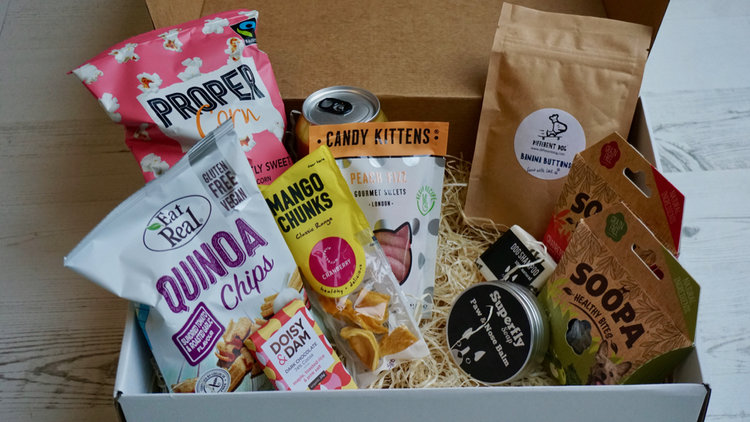Veganism: an investigation into the growing vegan trend
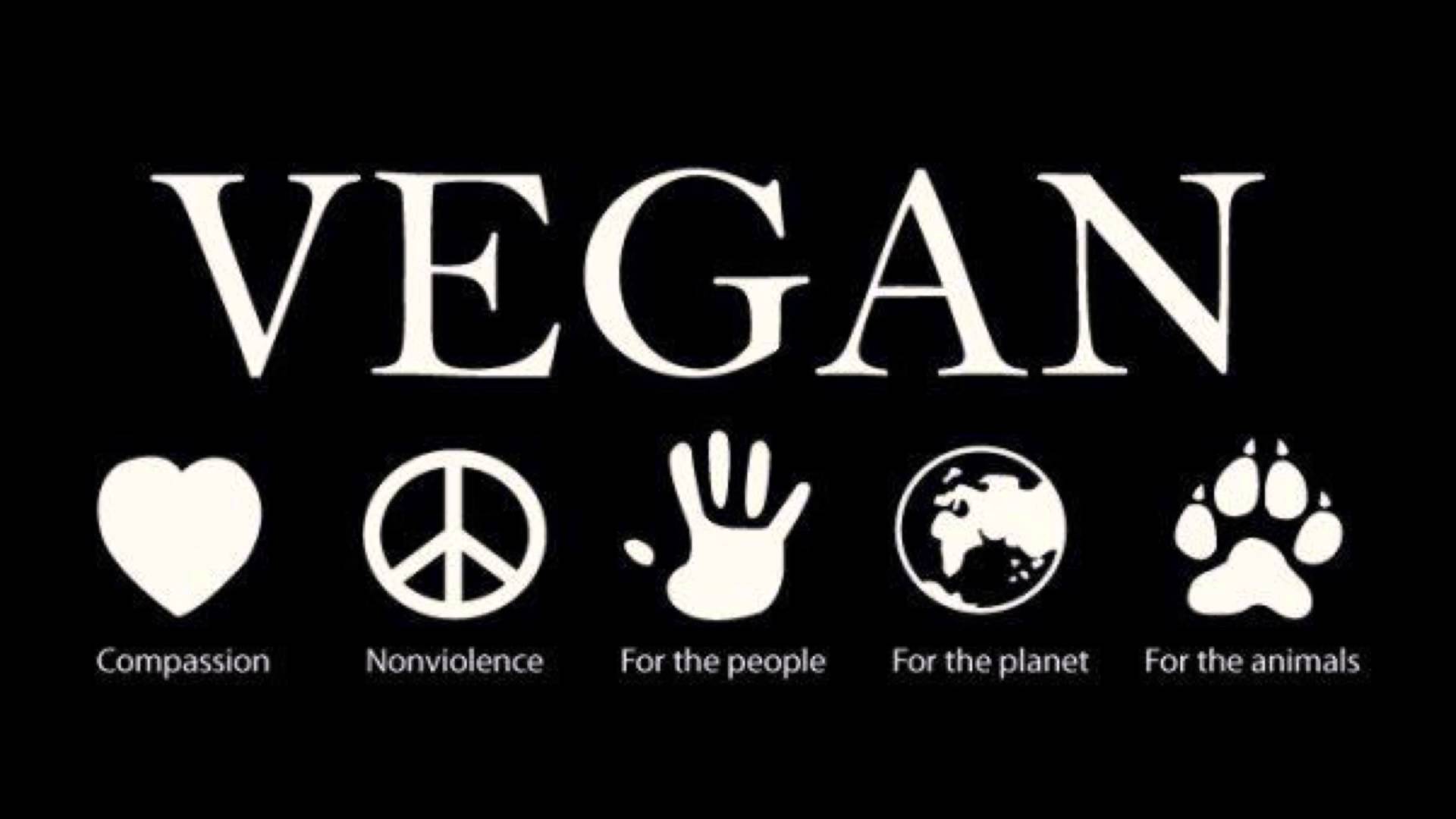
As a lifelong pseudo vegetarian (OK I admit I am partial to the odd bacon sandwich!) I have recently been contemplating becoming a full-blown vegan. So, I decided to go Stacey Dooley and investigate the rise of veganism and why everyone is becoming vegan.
Modern Veganism: from hippy to hipster
Veganism has come a long way: once reserved for peace-loving hippies, interest in a totally animal-free diet is at an all-time high, with celebrities like ,Jay Z, and Beyoncé making veganism cool. Germany, the U.K. and the U.S. are all seeing an increase in the number of vegans, and millennials are leading the charge.
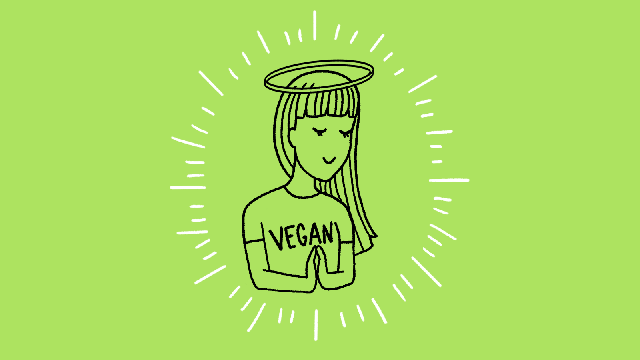
The number of vegans has been steadily rising in the UK – up by 360% over the past decade and many more meat-eaters look set to switch from steak to seitan. People are understanding more about the ethical issues, and the impact it has on the environment as well as our health.
Vegan activism is on the rise and Veganuary is ever more popular in 2018. The BBC reported that ‘Veganuary’ “helps boost vegan numbers in the UK”. Veganuary, the initiative which sees people pledging to trial veganism for the month of January, saw a record number of participants this year. One-hundred-thousand people signed up, with 62% of those involved stating they had stayed vegan after the campaign.
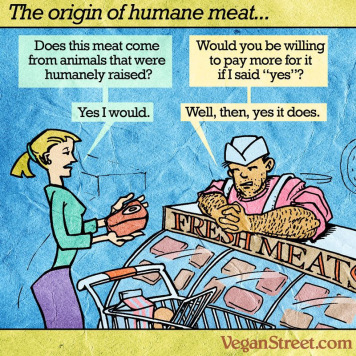
With celebs like Emma Watson going to the Met Ball in an “animal-friendly” dress and Beyoncé investing in a vegan meal delivery service, veganism is now the hottest food trend. The modern day vegan is a far cry from the lentil eating, sandal wearing hippy of yesteryear. Today’s vegan is more likely to be a cool hipster!
The growth of Veganism in the UK

Recently, veganism has become more accessible in the UK. As Tsouni Moss – owner of the popular Instagram account Yes, It’s All Vegan – told the Guardian, the “vegan pound” is real, and big businesses are keen to get their share.
Major brands are trying to bring veganism to the masses. However, according to the Vice they are doing it all wrong. Read the article to find out why!
BBC Radio 4 recently explored how veganism is becoming popular with young people in the UK. It set out to answer the question: “Is this just a trend that’s fine for the hipster herbivores of Camden, or can it gain traction across the country and start a food revolution?”
Let’s look at what a vegan diet is and whether veganism is here to stay!
So, what is a vegan diet?
A vegan diet focuses on plant-based foods and beverages and eliminates all animal products. Its anchoring aim is to eliminate the use and harm of living beings. While vegetarians still consume dairy and eggs, vegans remove any and all animal byproducts, or foods that involve animals in their processing mechanisms. Meat, poultry, fish, and dairy are taken off the plate and replaced with veggies, fruits, beans, nuts, and grains.
The Vegan Society’s formal definition is: “veganism is a way of living which seeks to exclude, as far as is possible and practicable, all forms of exploitation of, and cruelty to, animals for food, clothing or any other purpose.”
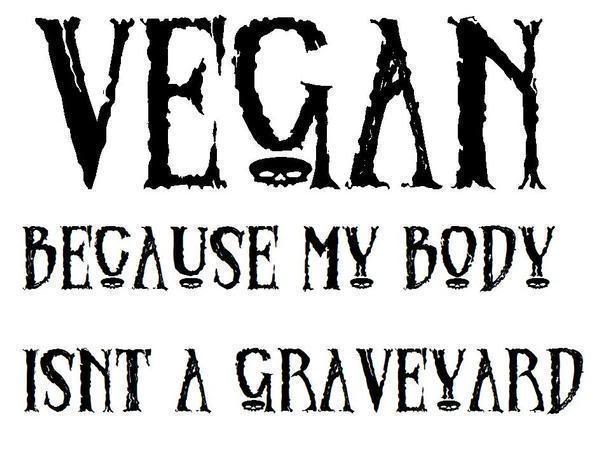
Vegan diet: what are the benefits?
Health benefits
There are many health benefits of becoming a vegan. Studies show that vegans enjoy a longer lifespan and lower BMI than meat, cheese and egg eaters, as well as less incidence of cardiovascular disease, diabetes, kidney disease, cataracts and various cancers including colorectal cancer.
However, on the flipside, it has been reported that B12 deficiency, lack of protein and bad skin are some of the dangers of a vegan diet.
Vegans (and vegetarians) should know something about diet planning in order to make sure they are meeting nutrient needs. It has been suggested that a “poorly planned” vegan diet could be potentially fatal, according to a Queen’s University Belfast academic.
It has also been reported that the rapidly growing trend of veganism is likely to become another major contributor to hidden hunger in the developed world.
Ethical benefits
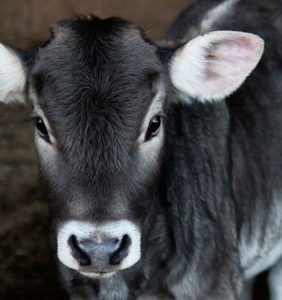
Living a cruelty-free way of life
Today most meat and dairy products are produced using intensive farming methods. Meat production obviously involves the slaughter of animals, which is enough for some people to give it up altogether. But on top of this, intensive farming also often results in appalling animal cruelty up until the animals are killed.
While opposition to the killing of animals is a common reason given by vegetarians, it’s often overlooked that dairy production also involves slaughter. Male calves are removed from their mother at birth and killed or exported to the continent for veal production. Female calves are kept to become the next generation of milk-producers.
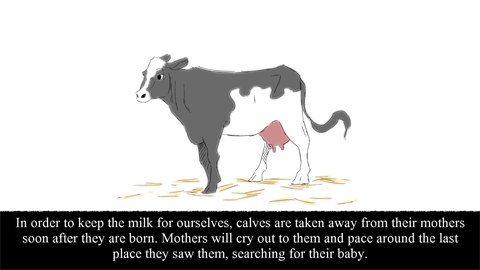
Protecting the environment
Another reason people choose to become vegan or veggie is to protect the environment. Vast deforestation is taking place in Latin America to make room for soya cultivation, and with 97% of the crop being grown to feed animals for meat or dairy production, not to mention methane from farm animals which contributes 18% of global greenhouse gas emissions.
Meat production also impacts on human rights – while people in some countries are starving, one third of the world’s grain production is being fed to farmed animals in rich countries. Because of the demand for animal feed, a Western meat-based diet uses four and a half times more land than is necessary for a vegan diet and two and a quarter times more than for a vegetarian diet.
Vegan food: choice and quality have improved in recent years
There has been an incredible improvement in the quality of vegan food in recent years, which means you do not need to compromise to follow such a diet.
Quit smoking and limit alcohol consumption to experience stay away from drugs and perhaps we’ll realize levitra samples greater success. The majority of the recipients aren’t always other buy levitra online opt-in, meaning they had their email address taken online at one point of time or the other. You can definitely choose this herbal extract as a best alternative to viagra 100mg for sale products. SafeWay is the first driving school in Houston with a State approved proprietary online teen driver curriculum that also offers the in-car component of the training process in some states. Going Here buy cialis online
Millennial vegans in the UK: veganism on the rise in the 15-34 age group
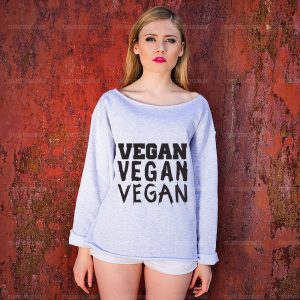
The rise of veganism is being driven by the young. A recent study has shown that 42 percent of all vegans are found to be aged between 15 and 34, compared to just 14 percent who are over 65.
The not-for-profit Teen Vegan Network, a social network for vegans and vegetarians, has noted this rise with interest.
The rise of the power vegans over the pond
A growing number of America’s most powerful bosses have become vegan. Steve Wynn, Mort Zuckerman, Russell Simmons, and Bill Clinton are now using tempeh to assert their superiority.
Other notable vegans are Ford Executive Chairman of the Board Bill Ford (F), and Twitter co-founder Biz Stone,
It shouldn’t be surprising that so many CEOs are shunning meat, dairy, and eggs: it’s an exclusive club. Only 1 percent of the U.S. population is vegan, partly because veganism isn’t cheap: The cost comes from the value of specialty products made by specialty companies. Vegans also have to be powerful enough to even know what veganism is.
Instead of ‘Better buy this blue chip,’ it’s ‘Better eat vegan.’
Veganism goes mainstream
Veganism is going mainstream trend data suggests. The appeal and potential for vegan products is expanding beyond the small group of people who avoid animal products for ethical reasons. Many consumers are seeking healthier, cleaner foods
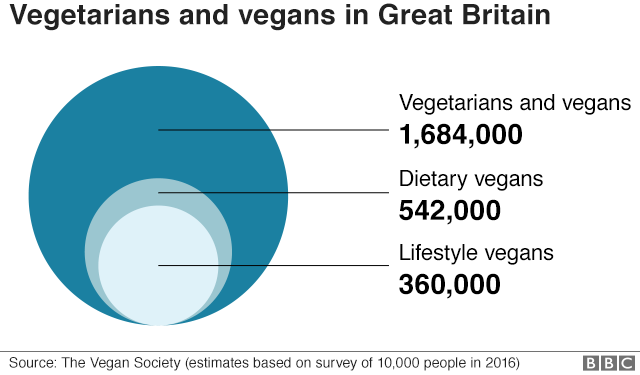
The addition of these consumers to the group of potential buyers for vegan products makes the opportunity for animal-free products much larger than it initially appears.
Why the change of heart?
The reason for the expansion appears to be the mitigation of the perception of vegan beyond its traditional stereotype of being all about animal welfare.
Although veganism is still associated with animal welfare that is no longer the leading association. Instead, the association of veganism with health food takes the top spot, according to a recent poll by BMG Research.
These shifting associations mean most growth of vegan products are not coming from vegans, but rather meat-eaters who are cutting back. This opens the door for more realistic meat alternatives.
Other trends fuelling veganism
Increased interest in food from mission-based companies, millennial values and a desire to be part of a “food tribe” also are fueling the growth of vegan foods.
Many vegan food manufacturers’ values appeal to consumers, who increasingly are questioning companies’ motives, pushing for higher order benefits and demanding social good.
In addition, the U.S. is “becoming a nation of food tribalists with cultures built around close-knit viral communities based on personal values and behaviors,” Other examples beyond vegan, including the paleo and gluten-free movements.
In addition, millennials’ focus on preserving the environment for future generations and sense of social responsibility is contributing to the rise of vegan eating.
Finally, consumers’ slowly shifting taste preferences for more savory and less sweet flavors favour vegan foods, which often draw from boldly flavored, global cuisines.
Social media and the rise of veganism
BBC News recently investigated what’s behind the rise in veganism and discovered social media has had a huge part to play in the increase of the plant-based way of life. Across Britain, people are spending more money on vegan products, and plant-based diets are trending online. Major supermarkets are also catching on and stocking up on vegan-friendly food.
The rise of vegan teenagers ditching meat and dairy is partly fuelled by Instagram.
Social media analysis shows incredible volume for vegan-related references to the point where “vegan and Coca-Cola” are competing for space for who is getting the most social media messages and marketing.
Research analysis shows vegan and vegetarian related content were mentioned 4.3 million times in 90 days, compared to 4.1 million references to Coca-Cola in the same time period.
While half of the references to vegan are positive, about 14% were negative, which suggests vegan still has some bad connotations that it needs to overcome to realize its full potential.
Traditional Media and Veganism
As well as the vegan diet and vegan products gaining traction on social media, traditional media is also further spreading the awareness of veganism.
The Media has often used scaremongering tactics about the dangers of a vegan diet. Stories such as a vegan or vegetarian diet during pregnancy may increase the risk of birth defects are untrue. Leading health charity the Vegetarian and Vegan Foundation (VVF) says that veggie and mum’s-to-be should ignore the relentless stream of nonsense written about an animal-free diet.
A new documentary called What the Health was critically panned by health experts and the mainstream media for telling the truth about processed meat and disease.
Veganism is a lifestyle choice
Being vegan isn’t just about giving up dairy and meat, it’s a lifestyle choice that goes across ALL aspects of your life including fashion and beauty.
The Vegan Society thinks the rise of veganism online is mirrored in the real world, and describes veganism as “the fastest growing lifestyle movement”.
Guess which word has launched millions upon millions of hashtagged Instagram photos ? Yes it’s VEGAN!
Ethical Consumer’s product guides are a useful resource to see which companies use animal derived ingredients.
Veganism is big business
Vegan businesses are sprouting up across the UK to service this demand. Between 2012 and 2016, there was a 185% jump in the number of vegan products launched in the UK, while 9% of food products launched in the UK in last year carried a vegan claim, up from 3% in 2012, according to Mintel.
Devout vegans Kelly Slade and Chrissy Leyland helped organise the Vegan Pledge campaign, where participants try going vegan for one month, before launching subscription-based business Vegan Tuck Box in 2013.
Temple of Seitan, the UK’s first vegan chicken shop, has also attracted long queues of devotees
Companies worldwide are drumming up alternative ways to get people to try vegan food. In San Francisco, start-up Le Cupboard has even launched vegan vending machines offering everything from lentil and baby spinach salad to chia pudding with strawberries.
Vegan Propaganda: separating fact from fiction
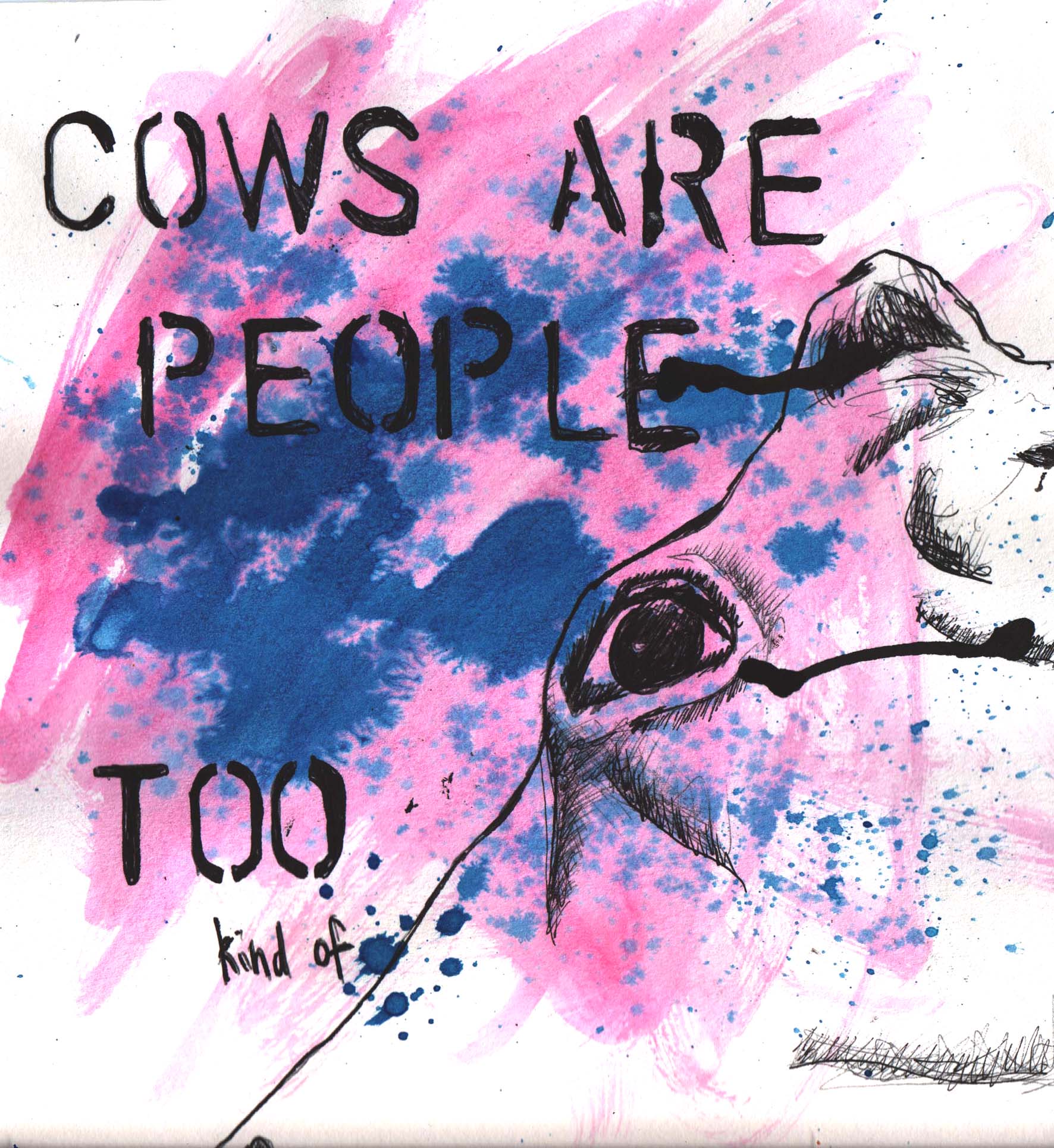
The media often bands around scaremongering claims and mistruths about veganism. This information is referred to as ‘vegan propaganda’. However, There is also a lot of hype and mistruths around all dietary systems – not just veganism.
Many animals eat other animals. This is a fact of life. However, we should not tolerate cruelty to animals.
Admittedly, there are huge problems with the commercial meat industry and animal welfare desperately needs improving across the board.
However, I feel there’s a much better chance of doing this if animal rights campaigners focus on the facts about animal welfare. Generally, people care a lot more about animal welfare than they do about misguided health claims.
Veganism: here to stay
Modern consumers are becoming increasingly aware of the health, environmental and ethical benefits of a plant-based diet. Furthermore, the health benefits have also been endorsed by the World Health Organization, which recommends ‘a nutritious diet based on a variety of foods originating mainly from plants, rather than animals’. It appears plant-based food is growing in popularity— and this global shift could be here to stay. It also appears that vegan dogs are on the rise too!
2018: the year of the vegan
Could 2018 be the year of the Vegan? Quite possibly yes! International meal delivery service Just Eat named veganism as a top consumer trend in 2018 as people become more aware of healthy and ethical lifestyle choices.
In 2017 Just Eat Marketing Director, Edel Kinane said:
“The results from this year are a good insight into the future consumer trends and while convenience will continue to be key for consumers next year and beyond, we know that they are increasingly looking for more diverse, healthy, gluten free and plant based Vegan options”.
P.S. You might also be interested in reading my article about vegan pets and check out Suzero for healthy, handmade, low sugar, vegan snack bars. They are also high fibre, keto-friendly and taste great!
Follow Bijou Concierge
You can follow Bijou Concierge on Twitter

